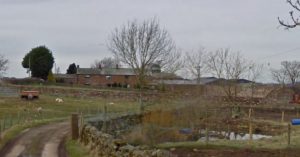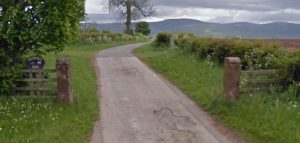The following list of Wigton Vestry Members, 1788, 1822-1834 is drawn from the vestry minutes. The year 1828 is not included. In most years the occupation or status of the person was also recorded. Where possible these have been checked against entries in trade directories. Some occupations not included in the minutes have been taken from the directories.
| Surname | First Name | Location | Status | Years |
| Armstrong | Thomas | Standingstones | yeoman | 1822-34 |
| Atkinson | John | 1788 | ||
| Barnes | John | Dockray | yeoman | 1824-31 |
| Barwick | Joseph | 1788 | ||
| Barton | William | Wigton, | spirit merchant | 1829 |
| Baxter | Abraham | Aikhead | farmer | 1827 |
| Baxter | William | Wigton | grocer | 1826-30 |
| Blackstock | John | Akehead | 1822-24 | |
| Bradshaw | William | Wigton | spirit merchant | 1822-23, 1826 |
| Clark | Wilfrid | 1788 | ||
| Crookdake | William | Wigton | gentleman | 1823-26 |
| Crozier | John | Aikhead | farmer | 1834 |
| Dalton | George | Wigton | farmer | 1829-34 |
| Dalton | Richard | Wigton | currier | 1831-34 |
| Dodgson | William | Wigton | manufacturer | 1826-27, 1832-34 |
| Donaldson | John | Wigton | brewer | 1830-34 |
| Edgar | James | 1788 | ||
| Fiddler | Edward | Wigton | manufacturer | 1833 |
| Fiddler | Jos | Mains | yeoman | 1829-31 |
| Furnass | John | Wigton | hat manufacturer | 1830-34 |
| Halliby | Anthony | Wigton | callico printer | 1823, 1825 |
| Henderson | John | Moorhouse | yeoman | 1822-23, 1825-34 |
| Hewson | Joseph | Wigton | blacksmith | 1832-34 |
| Hodge | Joseph | Highmoor | 1822-23 | |
| Hodgson | Jonah Ashburn | Wigton | common brewer | 1829 |
| Hodgson | Joseph | Wigton | attorney | 1823-32 |
| Howson | William | 1788 | ||
| Irving | J | chairman 1827 | 1827 | |
| Irving | Thomas | Wigton | innkeeper | 1822-23 |
| Ismay | John | Wigton | stationer | |
| Ismay | Jos | 1788 | ||
| Little | William | Lowfield House | farmer | 1834 |
| Lowes | John Faulder | Wigton | brewer | 1825 |
| Manduel | John | Oakshawhill | yeoman | 1827 |
| Mc Alpin | Duncan | Wigton | calico printer | 1830-34 |
| Mc Alpin | Thomas | Wigton | calico printer | 1822, 1824, 1826-28 |
| Matthews | Richard | reverend | 1822, 1824-26, 1829, 1832, 1834 | |
| Meals | John | Wigton | spirit merchant | 1826-34 |
| Messenger | John | 1788 | ||
| Moor | Joseph | Wigton | mason | 1824 |
| Parkin | Joseph | New Street, Wigton | gentleman | 1822-32 |
| Parkin | William | Wigton | manufacturer | 1825-27 |
| Pattinson | John | New Street, Wigton | manufacturer | 1822, 1825, 1827, 1829 |
| Pattinson | Joseph | Wigton | manufacturer | 1822-24, 1826, 1830 |
| Pattinson | Isaac | Wigton | gentleman | 1830-31 |
| Pattinson | William Blair | Wigton | 1823, 1827, 1830 | |
| Pingney | John | Wigton | farmer | 1824-25 |
| Reed | William | Wigton | currier | 1827, 1832-34 |
| Reymond[?] | John | Spittal | farmer | 1834 |
| Richardson | Joseph | Wigton | painter | 1832 |
| Rigg | Samuel | Wigton | mercer | 1824-26, 1829-30 |
| Robinson | John | Wigton | 1823 | |
| Robinson | John jun | Wigton | mercer | 1826-27 |
| Rooke | John | Aikhead | yeoman/gent | 1824-26, 1829-32, 1834 |
| Sandorson | John | 1788 | ||
| Saul | John | Wigton | painter | 1833 |
| Selby | Matthew | Dockray | yeoman | 1833 |
| Shadwick | Joseph | Moorhouse | miller | 1829 |
| Sheffield | Joseph | Wigton | butcher | 1826, 1833 |
| Simonds | James | Wigton | gentleman | 1829-34 |
| Simonds | John | Wigton | farmer | 1831, 1833 |
| Smith | John | Mains | 1822 | |
| Strong | John | Wigton | yeoman | 1833-34 |
| Studholme | Joseph | Wigton | attorney | 1823-24, 1826-32, 1834 |
| Taylor | John | Wigton | 1822 | |
| Twentyman | Timothy | Wigton | gentleman | 1823-27, 1830, 1832-34 |
| Westmorland | Isaac | Wigton | 1822 | |
| Willis | John | Wigton | attorney | 1830-32 |
| Wilson | Matthew | 1788 | ||
| Wise | Robert | Wigton | shopkeeper/grocer | 1822, 1824-29, 1831-33 |
Sources
Cumbria Archives, Carlisle, PR/36/119, Wigton Vestry Minute Book, 1735-1885
Francis Jollie, Cumberland Guide and Directory (Carlisle: 1811)
E. M. Parson and E. W. White, History, Directory and Gazetteer of the counties of Cumberland and Westmorland (1829)
Pigot and Co., National Commercial Directory [Part 1: Cheshire – Northumberland] for 1828–29 (London and Manchester: J. Pigot and Co., 1828)
This is a work in progress, subject to change as new research is conducted.

